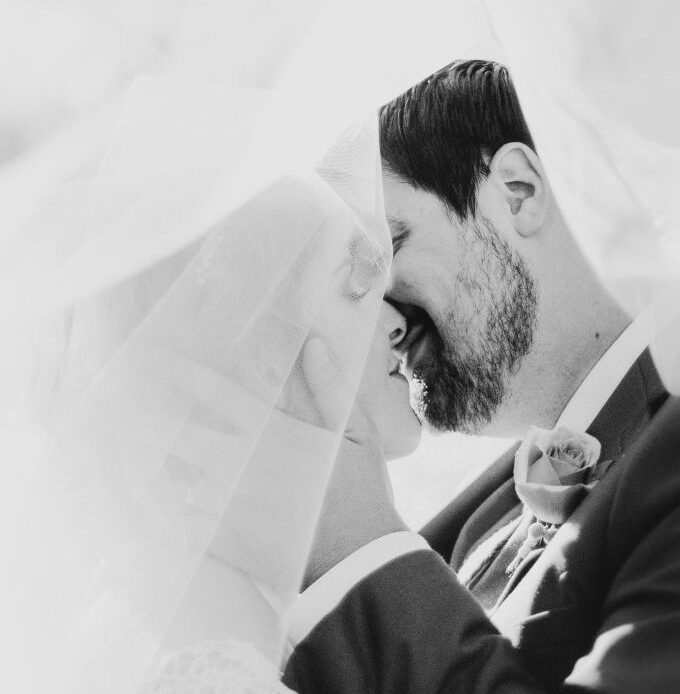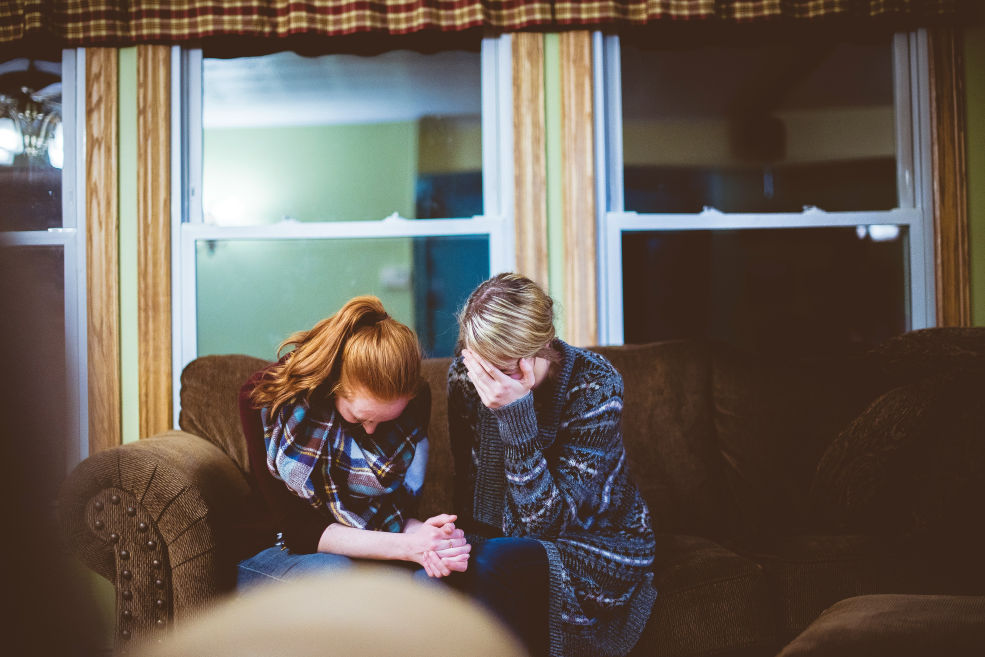The Sudden Loss
The shock of losing a spouse suddenly is indescribable. One moment, everything seems normal, and the next, your world is turned upside down. This kind of loss leaves you grappling with the reality of never having the chance to say goodbye or prepare emotionally. The unexpected nature of sudden loss often amplifies the grief, making it feel more intense and overwhelming. You’re left trying to make sense of it all, while also trying to figure out how to move forward.
Understanding the Emotional Impact
The emotional impact of losing your husband suddenly can be all-encompassing. The initial shock is often so profound that it feels like your entire world has been turned upside down. You might experience a range of emotions, from disbelief and numbness to intense anger and sadness. One of my clients shared that in the early days after her husband’s sudden death, she found herself crying during the long drives to and from her children’s school, struggling to accept the reality of her loss. It’s important to acknowledge that these emotions are a natural response to such a devastating event. There is no right or wrong way to feel, and giving yourself permission to experience these emotions fully is a crucial step in the healing process.
The Unique Challenges of Sudden and Anticipatory Grief
Sudden and anticipatory grief each come with their own set of challenges. With sudden loss, the abruptness can leave you in a state of shock, while anticipatory grief—knowing the loss is coming—creates a prolonged period of emotional turmoil. In my experience, my husband’s death brought a mix of both, as I had been preparing for years due to his illness, yet the finality still hit hard. Each type of grief requires different coping strategies, and it’s important to recognize that your journey through grief is uniquely your own.
Understanding Sudden Grief
Sudden grief presents unique challenges. The abrupt nature of the loss can leave you feeling as though you’ve been blindsided, with no time to prepare emotionally for life without your partner. One of my clients described how she initially coped by convincing herself that her husband was simply at work, unable to fully grasp that he was gone forever.
Unlike other forms of grief, where there may be some expectation or anticipation of loss, sudden grief is often accompanied by a sense of unreality, as if the loss hasn’t truly happened. When my daughter Maya died suddenly in her sleep, it was one of the hardest moments of my life. Despite my experiences with grief, nothing prepared me for the shock of her loss. She seemed well, and I thought we had more time. This kind of grief can feel chaotic and overwhelming, making it even more important to seek support and find ways to ground yourself during this difficult time.
How Anticipatory Grief Differs
Anticipatory grief occurs when you know that loss is coming, such as when a loved one is diagnosed with a terminal illness. While this type of grief allows for some emotional preparation, it doesn’t necessarily make the eventual loss any easier to bear. I experienced anticipatory grief with my husband, who had been diagnosed with a terminal condition. We knew his death was coming for years, but it still hit hard when it finally happened. The years spent anticipating the loss can create a complex emotional experience, mixing sorrow with moments of hope and despair. Despite this preparation, the final loss still hits hard, revealing that no amount of anticipation can truly prepare you for the absence of a loved one.
Coping Strategies for Sudden Loss
When faced with sudden loss, it’s essential to find ways to cope that work for you. For me, it’s about using controlled grief—taking time to intentionally feel the pain, look at pictures, and allow myself to cry. This process helps in gradually accepting the reality of the loss. Surrounding yourself with a supportive community, whether friends, family, or grief support groups, can also provide comfort and understanding as you navigate the waves of grief. Remember, there is no right or wrong way to grieve; it’s a personal process that unfolds over time.
Being Present with Your Emotions

One of the most important aspects of coping with sudden loss is allowing yourself to be fully present with your emotions. Grief is a deeply personal journey, and it’s essential to give yourself the space to feel whatever comes up—whether that’s sadness, anger, confusion, or even moments of peace. Being present means acknowledging these feelings without judgment and without trying to rush through them. One widow shared that she initially tried to keep her grief at bay by staying busy, but eventually realized that she needed to set aside time to grieve, even if it was years later. This conscious effort to be present with her emotions was crucial in helping her begin to heal.
Seeking Support from Loved Ones and Professionals
When you’re going through grief, reaching out for support is essential. Your loved ones can offer a comforting presence, but they may not always know the best way to help. That’s where professionals come in—they provide a safe space to explore your feelings and offer practical tools to help you cope. Don’t hesitate to lean on both your personal circle and professional support. Together, they can guide you through the healing process, making sure you don’t have to face this journey alone.
Practical Steps to Manage Day-to-Day Life
Managing day-to-day life after a loss can feel overwhelming, but breaking it down into small, manageable steps can make a difference. Start by focusing on basic tasks—eating well, getting enough rest, and staying hydrated. It’s okay to simplify your routine and prioritize what truly matters. Make lists to help you keep track of important responsibilities, and don’t be afraid to ask for help with tasks that feel too daunting. Remember, it’s about taking things one step at a time and giving yourself grace as you adjust to this new reality.
Controlled Grief: Creating Space to Process
Controlled grief involves feeling the pain of grief so that it doesn’t completely impact every other area of your life. This can be done by scheduling specific times to sit with your emotions, look at pictures, and allow yourself to cry. This approach can be particularly helpful when the demands of daily life make it difficult to fully process your grief. By creating a structured space for grieving, you give yourself permission to feel deeply without being overwhelmed. This method can also provide a sense of control in an otherwise uncontrollable situation, helping you to gradually integrate your loss into your life.
Rebuilding Your Life After Loss
Rebuilding your life after loss is about finding a new path forward, one step at a time. It’s not about “getting over” your grief but rather learning how to live alongside it. Start by identifying small goals or activities that bring you a sense of purpose or joy. It could be as simple as reconnecting with a hobby you once loved or setting new routines that give structure to your days. It’s okay to take your time—there’s no rush. What matters is allowing yourself the space to grow and heal at your own pace, while gently rediscovering what life can look like in this new chapter.
Finding New Meaning and Purpose

After the loss of a husband, finding new meaning and purpose in life can seem daunting, but it is an important part of the healing journey. Many people who have experienced loss eventually find that their grief leads them to new paths and new understandings of themselves. This process doesn’t happen overnight, and it’s important to be patient with yourself as you explore what your life might look like moving forward. Whether it’s through helping others, pursuing new interests, or simply finding small joys in daily life, rebuilding after loss is about discovering what brings you peace and fulfillment.
Moving Forward Without Guilt
Moving forward after the loss of your husband can be accompanied by feelings of guilt, as if continuing to live your life is a betrayal of his memory. It’s important to remember that healing and moving forward does not mean forgetting or replacing your loved one. Instead, it’s about finding a way to carry their memory with you as you continue to live. There’s often a struggle between wanting to cling to the past and accepting the reality of your new life. It’s okay to experience joy and to build a new life while still honoring the love you shared. Moving forward without guilt involves recognizing that your husband would want you to find happiness again, and that your healing is a testament to the love you had.
Considering New Relationships and Emotional Intimacy
At some point in your journey, you may consider the possibility of new relationships. This can be a complicated and emotional decision, filled with mixed feelings of hope, guilt, and fear. Reflecting on the idea of dating after loss, it’s common to have concerns about how a new partner might never truly understand the depth of your previous relationship, especially with your late husband. It’s important to take your time and to honor your own emotional readiness. New relationships do not diminish the love you had for your husband; rather, they can bring new joy and companionship into your life. As you consider this possibility, remember that your grief and your love for your husband will always be a part of who you are, and it’s okay to carry those memories with you into a new relationship.
Revisiting Grief: How It Resurfaces Years Later
Grief is not a linear process, and it doesn’t have an expiration date. Even years after your husband’s death, certain triggers—such as anniversaries, songs, or even a scent—can bring the grief back to the surface. This is a normal part of the grieving process and doesn’t mean you haven’t healed. Grief can resurface in waves, often when you least expect it, and these moments are reminders of the love you continue to carry. Revisiting grief can also be an opportunity to reflect on how far you’ve come and how you’ve grown through your journey.
Honoring Your Husband’s Memory
Honoring your husband’s memory is about finding meaningful ways to keep his spirit alive in your daily life. This could be through creating a memorial space at home, engaging in activities you both enjoyed, or simply talking about him with loved ones. For me, sharing my journey and his story has been a way to keep his memory alive while also helping others. Whatever way you choose to honor your husband, let it be something that brings you peace and comfort, knowing that his legacy continues through you.
Celebrating Special Days and Memories
Special days, such as birthdays, anniversaries, and holidays, can be particularly challenging after the loss of your husband. These days can bring a renewed sense of loss, but they also offer an opportunity to celebrate your husband’s life and the love you shared. Finding ways to honor these special days can bring comfort and keep his memory alive. Some people choose to create new traditions, such as lighting a candle, sharing stories, or doing something that their spouse loved. These rituals can provide a sense of connection and continuity, allowing you to celebrate your husband’s life even as you navigate your grief.
Keeping a Connection Through Rituals and Remembrance
Maintaining a connection with your husband after his death can be an important part of your healing process. Rituals and acts of remembrance, such as visiting a special place, keeping a journal, or creating a memory box, can help you feel close to your loved one. These practices allow you to honor your husband’s memory in a way that feels meaningful to you. Using controlled grief to stay connected to your husband who has passed, by setting aside time to remember him and to reflect on his impact on your life, can provide comfort and a sense of ongoing connection, helping you to carry your husband’s memory with you as you move forward.
How to Support Others Who Are Grieving

If you’ve experienced the sudden loss of your husband, your experience can be a valuable source of support for others going through similar grief. Sharing your story, offering a listening ear, and being present for someone else in their time of need can make a significant difference in their healing process. Grief can feel isolating, but knowing that someone else understands what you’re going through can be incredibly comforting. Supporting others by sharing your own journey and insights can help them navigate their own grief with compassion and understanding. Your willingness to support others not only honors your husband’s memory but also strengthens your own healing process.
How Grief Evolves Over Time
Grief is not something that simply ends; it evolves over time. What may start as an all-consuming pain can eventually transform into a bittersweet memory, a quiet moment of reflection, or a deeper understanding of life’s fragility. Understanding that grief changes and evolves can help you navigate the long-term journey of healing. As I reflect on my own journey with grief—from the loss of my children to now my husband—I’ve learned that each loss shapes you in new ways. Grief shifts over the years, from the intense sorrow of initial losses to a more nuanced understanding of how those experiences shape you. While the loss never fully leaves, your capacity to live alongside it grows, helping you find a new sense of normalcy and peace.

